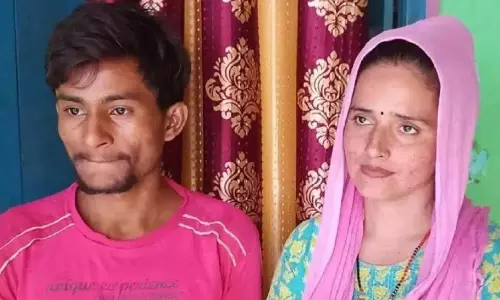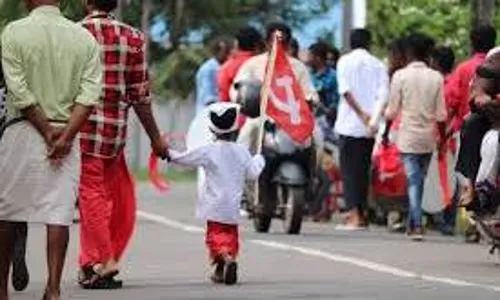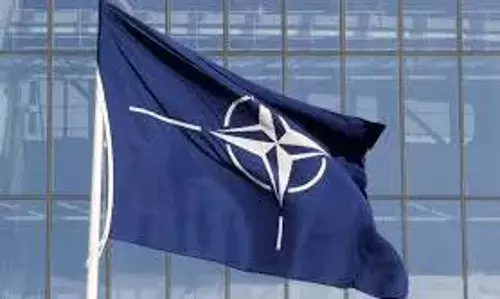
Kerala in the grip of drug mafia?
text_fieldsThe authorities recently apprehended a Paraguayan national at the Cochin International Airport in Kerala who is believed to be a member of an international drug mafia.
He landed in Nedumbassery with cocaine, a dangerous narcotic drug worth Rs 15 crore. It is apparently the biggest ever seizure of cocaine in Kerala. Reports also say that cocaine worth Rs 220 crore was seized in India this year. This is the estimate, of only the quantity of cocaine that has been seized. And God alone knows the quantity of drugs coming in via the drug mafias which dodge security forces. Kerala ranks first with the highest Human Development index in India. Reports have been surfacing in the media on a daily basis which trigger apprehensions that the import, smuggling, sale and consumption of drugs has been on the rise. With the increase in the influx of migrant workers, the smuggling, distribution and consumption of drugs are also surging up at an alarming rate. According to the revelations of Excise Commissioner Rishi Raj Singh, the drug mafia has targeted about 70 lakh people including the youth and the migrant workers. At the national level, Kochi ranks second after Amritsar, Punjab in the consumption of narcotic substances. W e currently face the predicament of young children starting from high school, irrespective of the gender, falling to the prey of the drug mafia and becoming addicted to different kinds of narcotic products. Even stamp-size products that could be stuck on to one’s tongue are now available in the market. Experts say that even road side shops near the schools and college campuses turn into selling points for such toxic substances. According to the reply given by Union Minister for Social Justice and Empowerment Thawar Chand Gehlot in the Rajya Sabha, around 7.21 crore people had been affected due to drugs in the country in 2016. Of this, Kerala’s share is least likely to be low. It is also clear that statistics like these are neither complete nor comprehensive.
One major decision taken by the ruling LDF coalition, soon on assuming power, was the liberalization in the issuing bar licence to star hotels. And then came the relaxation by the Supreme Court regarding liquor shops adjacent to the national highways. The government had started off with the declaration that the state government's policy was not prohibition but abstinence from liquor, and ignoring all opposition took steps to make liquor easily available to those who wanted it. A key point in the reply given by the government and the coalition partners to all criticisms, was that it was the liquor policy of the preceding UDF government that had caused the spread of use of narcotics. Thus came the justification that if people turn to the less harmful liquor, they would not turn to narcotic substances which were more detrimental. But, although exact statistics have not come out, even after the closed bars were re-opened, the distance of liquor shops from places of worship and educational institutions reduced, and the authority to grant liquor shop licences taken away from local self-government bodies, the number of narcotic users has only increased. And that trend is getting stronger by the day. While one section consumes both liquor and narcotics alike, another section is done with only one of the two. It is more so with adolescents and youth, and if they decide to have liquor, no one can set conditions, limits or quantity for that. Finally, our adolescents are taken to a stage where they can obtain and consume intoxicants anywhere - and can get directly transported to a realm of trance without going to a bar or shops.
Although the government has been repeating that no government can dictate the type, measure, extent and time-table for intoxicants and that its policy is of liquor-abstinence, the people are yet to be convinced what effective steps have been taken by the government for an anti-liquor awareness. For, there is no sign of any campaign for creating such an awareness. It would have been more graceful for the government to honestly acknowledge that there is no way for increasing revenue to the treasury other than producing and distributing liquor. In any case, if the government does not intend to forsake Kerala, which is already moving fast along an alcoholic track, for the liquor-drug mafia as in countries like Brazil, Peru, and Mexico, it is imperative for it to take expeditious defensive measures. Instead of booking a random smuggler or distributor in a hundred and making headlines of it, the need of the hour is to put in place a machinery with teeth that can take stern preventive steps against the production, transport, import and consumption of narcotics, catch hold of culprits and punish them. There should be an end to the situation where the ones caught come out on bail with ease and again indulge in the deadly trade. And the co-operation of all well-meaning people who value humanity should be ensured in this endeavour.























